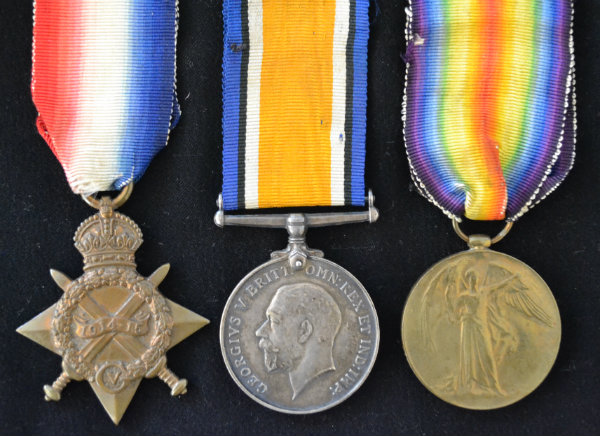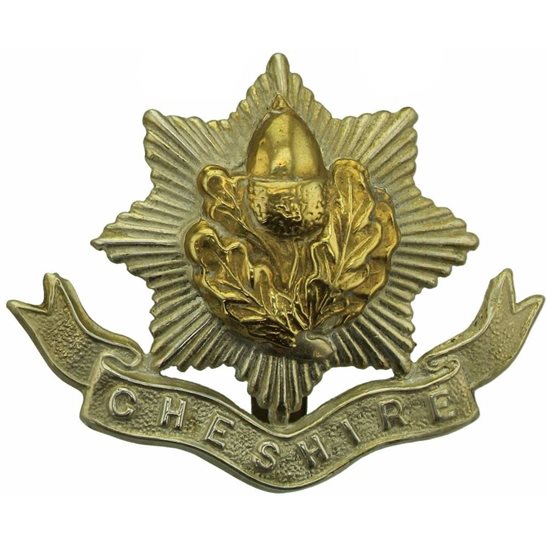Personal Details
Born: 17 July 1887 (baptised 3 August 1887).
Family: The third child of Peter and Jane Roles of Castle Hill, Whitchurch, Shropshire.
Civilian Occupation: He was a bricklayer’s labourer when he joined the Army on 22 February 1904 and became a reservist in 1907. After the war he was employed by the London and North Western Railway Company.
Died: In March 1968 aged 80.
Other Information: Part of his service record is under the name ‘Rose’. His brother Cyril Cedric Roles is commemorated on the Whitchurch Town memorial.
Military Details
Regiment: Cheshire Regiment
Rank: Private
Service Number: 7419
Date of Enlistment: 14 August 1914
Date of Discharge: 26 March 1918
Reason for Discharge: No longer physically fit
Other Information: He was called up in 1914 and in 1915 he was reported missing but was later found to be a Prisoner of War. There was an exchange of prisoners of war in 1917 and he rejoined his unit.
Arthur was awarded the Campaign Medals (1914/15 Star, British War Medal, and Victory Medal).

The 1914 Star (also known as 'Pip') was authorised under Special Army Order no. 350 in November 1917 and by an Admiralty Fleet Order in 1918, for award to officers and men of the British and Indian Expeditionary Forces who served in France or Belgium between 5 August and midnight of 22–23 November 1914. The former date is the day after Britain's declaration of war against the Central Powers, and the closing date marks the end of the First Battle of Ypres.
The 1914–15 Star (also known as 'Pip') was instituted in December 1918 and was awarded to officers and men of British and Imperial forces who served against the Central European Powers in any theatre of the Great War between 5 August 1914 and 31 December 1915. The period of eligibility was prior to the introduction of the Military Service Act 1916, which instituted conscription in Britain.
The British War Medal (also known as 'Squeak') was a silver or bronze medal awarded to officers and men of the British and Imperial Forces who either entered a theatre of war or entered service overseas between 5th August 1914 and 11th November 1918 inclusive. This was later extended to services in Russia, Siberia and some other areas in 1919 and 1920. Approximately 6.5 million British War Medals were issued. Approximately 6.4 million of these were the silver versions of this medal. Around 110,000 of a bronze version were issued mainly to Chinese, Maltese and Indian Labour Corps. The front (obv or obverse) of the medal depicts the head of George V. The recipient's service number, rank, name and unit was impressed on the rim.
The Allied Victory Medal (also known as 'Wilfred') was issued by each of the allies. It was decided that each of the allies should each issue their own bronze victory medal with a similar design, similar equivalent wording and identical ribbon. The British medal was designed by W. McMillan. The front depicts a winged classical figure representing victory. Approximately 5.7 million victory medals were issued. Interestingly, eligibility for this medal was more restrictive and not everyone who received the British War Medal ('Squeak') also received the Victory Medal ('Wilfred'). However, in general, all recipients of 'Wilfred' also received 'Squeak' and all recipients of The 1914 Star or The 1914/1915 Star (also known as 'Pip') also received both 'Squeak' and 'Wilfred'. The recipient's service number, rank, name and unit was impressed on the rim.

